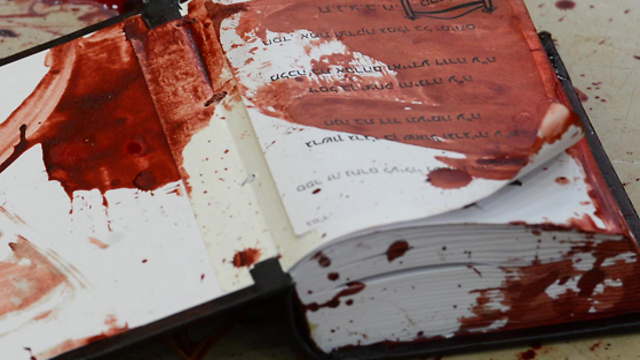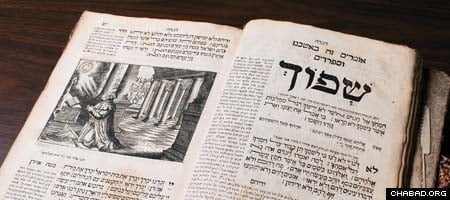Rerun of my previous popular summer advice.
Dear Rabbi,
I’m a young modern Orthodox woman. I like to go to the beach in the summer. Recently some of my friends criticized me for wearing a bikini at the beach. They say their rabbis taught them that it is not in keeping with our religion to wear a bikini because it is clothing that is not modest. I see that the prevalent fashion for young and fit women at the beach or pool is mostly a bikini. What makes your fellow rabbis think that they have the authority to dictate to me and other women what fashions to follow on the beach —or off it?
Two Piece in Teaneck
Dear Two Piece,
I’m one rabbi who does not claim to have women’s fashion expertise. I am relieved that you ask me about rabbinic authority, rather than what is the right fashion for you.
I do know that in the world of fashion you hear often about trends, not standards. I recognize that there is a lot of variety in the choices that women have, on and off the beach.
One day this summer I had the occasion to walk the length of the boardwalk in a Long Island South Shore beach community and could not help but observe that bikinis are a quite common choice for women, young and middle aged, at the beach clubs along the way. And I did notice in the Target ad flyer in the Sunday newspaper that most of the women’s swim suits on sale are bikinis.
Before anyone criticizes me for gazing upon women, let me refer to a story about one of our greatest talmudic rabbis, Rabban Gamaliel. According to the Talmud, when he saw a beautiful woman, Gamaliel recited a blessing, Blessed be He who made beautiful creatures in this world.
I agree with Gamaliel. Beauty is something that God bestowed upon our world. When the appropriate fashion allows for us to admire beauty in a tactful and respectful way, we may do so, and perhaps we should thank God with a blessing.
Now you may wonder, why don’t other Orthodox rabbis agree with Rabban Gamaliel and with me? Why do many religious authorities who happily admit that they have no knowledge or understanding of fashion go ahead and teach and preach that it’s a religious obligation that women must cover up their arms and legs and midriffs?
I don’t know why other rabbis have taken upon themselves the authority to dictate fashion requirements to women. And I find it hard to approve of that.
It seems to me wrong for any man to require women to cover up. Even though there is a long-standing theme in Jewish customs for married women to cover their hair and there are other customs for all women to cover much of their skin, the requirement of long sleeves and long skirts using the category of “modesty” is at best capricious. In the preponderance of contexts it also is out of step with the normal and customary notions of fashion in our general communities.
And one more thing. It is not a stretch for some folk to criticize the cover-up rules in Orthodox circles as yet another means of segregating women and as a way of denying them the freedom to choose and the rights to decide their own fashion options.
The notion that covering up all of your skin on the hot summer beach or at the pool or in the marketplace around town is connected to virtue is patently unfounded. Hence the rules that mandate overdressing are arbitrary annoyances at best.
Yet I’ve been told that there is a new women’s clothing store on Cedar Lane in Teaneck that sells kosher swimsuits made of nylon and polyester, comprising pants under a skirt and elbow length sleeves. I would not be surprised if these bathing costumes have tags on them certifying rabbinical approval.
Truly, I have no idea where my colleagues got the notion that wearing a bikini at the beach is a bad thing. I can’t explain or justify this rabbinic attitude to you. My advice to you is to follow your own notions of comfort and the prevailing styles and fashions of your immediate community.
And if anyone criticizes you, you may answer with a confident and polite reply, Thank you for your opinion. I will wear whatever I deem appropriate.
Tzvee Zahavy earned his Ph.D. from Brown University and rabbinic ordination from Yeshiva University. He is the author of many books, including these Kindle Edition ebooks available at Amazon.com: “The Book of Jewish Prayers in English,” “Rashi: The Greatest Exegete,” “God’s Favorite Prayers” and “Dear Rabbi” — which includes his past columns from the Jewish Standard and other essays.
 In light of the awful terrorist attacks that have been launched once again in Israel I thought it urgent to repost this item.
In light of the awful terrorist attacks that have been launched once again in Israel I thought it urgent to repost this item.



 I've spent years teaching numerous college courses on religion - always with the disclaimer that we will cover only the positive aspects of the subject. Religion used for evil, that is for war or other forms of harm, is a misuse and distortion of systems of faith.
I've spent years teaching numerous college courses on religion - always with the disclaimer that we will cover only the positive aspects of the subject. Religion used for evil, that is for war or other forms of harm, is a misuse and distortion of systems of faith.





 Was columnist and Fox TV commentator Charles Krauthammer Jewish? Yes he was a Jew.
Was columnist and Fox TV commentator Charles Krauthammer Jewish? Yes he was a Jew. New Yorker has been churning out amazing content in the past few issues. David Remnick continues that flow with his account of Philip Roth's eightieth birthday celebration in Newark.
New Yorker has been churning out amazing content in the past few issues. David Remnick continues that flow with his account of Philip Roth's eightieth birthday celebration in Newark. Believe it or not - this story and my blog post about it was published in 2012. Tomorrow they will award another green jacket. The world is still not right...
Believe it or not - this story and my blog post about it was published in 2012. Tomorrow they will award another green jacket. The world is still not right...


 No, Kevin Spacey is not a Jew.
No, Kevin Spacey is not a Jew.